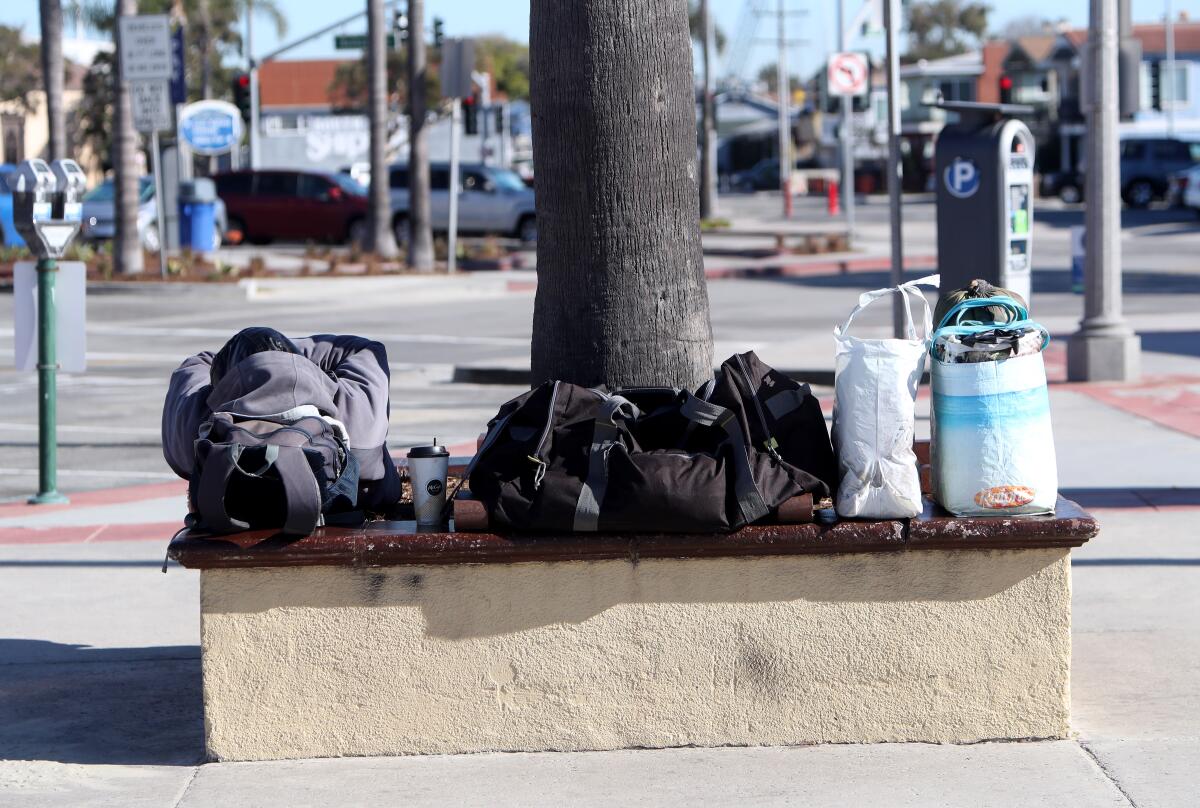Newport may recast homelessness task force as a council committee, drop citizen members

- Share via
Newport Beach may restructure and pare down its homelessness task force for the sake of efficiency and agility.
Under a proposal floated by Mayor Pro Tem Will O’Neill, who chairs the panel, the 10-member task force would be recast as a City Council ad hoc committee, retaining its three council members but officially dropping the seven citizen volunteers.
The current structure allows focused subcommittees to meet privately as desired, but under state open meetings law, information can only been shared among all members at monthly public meetings.
O’Neill said this can cause a silo effect that slows down implementation of solutions — for example, coordinating across the social services network of mental and physical health assessments to get people off the street and into housing.
“It’s been really difficult not to be able to talk to my fellow council members except for once a month on this issue,” he said Tuesday.
Joy Brenner and Brad Avery are the other council members on the task force. Citizen members include experts and officials from local social service, housing and homelessness nonprofits.
The City Council, which formed the task force in May, would need to approve the restructure.
As a three-person council committee, the group could direct the rest of the council while still turning to the seven citizen experts as advisors, O’Neill said.
Because ad hoc committees are less than a majority of the council, they are not required to meet publicly and they can quickly share information among themselves without violating open meetings law. When those meetings are not public, members also can more efficiently receive legal advice.
“I know some of our task force members have been frustrated by our system,” Brenner said.
“The system is cumbersome and it is confining, and I think this is going to give us the ability to utilize your expertise a lot more easily and for you to feel like your time is really being well-spent with us,” she added, addressing the citizen members during Tuesday’s task force meeting.
O’Neill said the reconstituted homelessness committee would still meet monthly in public, though in a less formal setting where conversational public input is encouraged on the high-interest subject.
Current task force meetings are held in council chambers, with members on the elevated dais. Tuesday’s meeting had a handful of observers, although previous meetings have packed in dozens.
“If it moves the whole process forward in a more effective and efficient manner, as well as an informed manner, then I think it’s certainly worth restructuring,” said member David Snow, a sociology professor at UC Irvine who has done extensive research on homelessness. “I can understand how the process has been slow and I think we all have been frustrated by it at times.”
All the latest on Orange County from Orange County.
Get our free TimesOC newsletter.
You may occasionally receive promotional content from the Daily Pilot.




